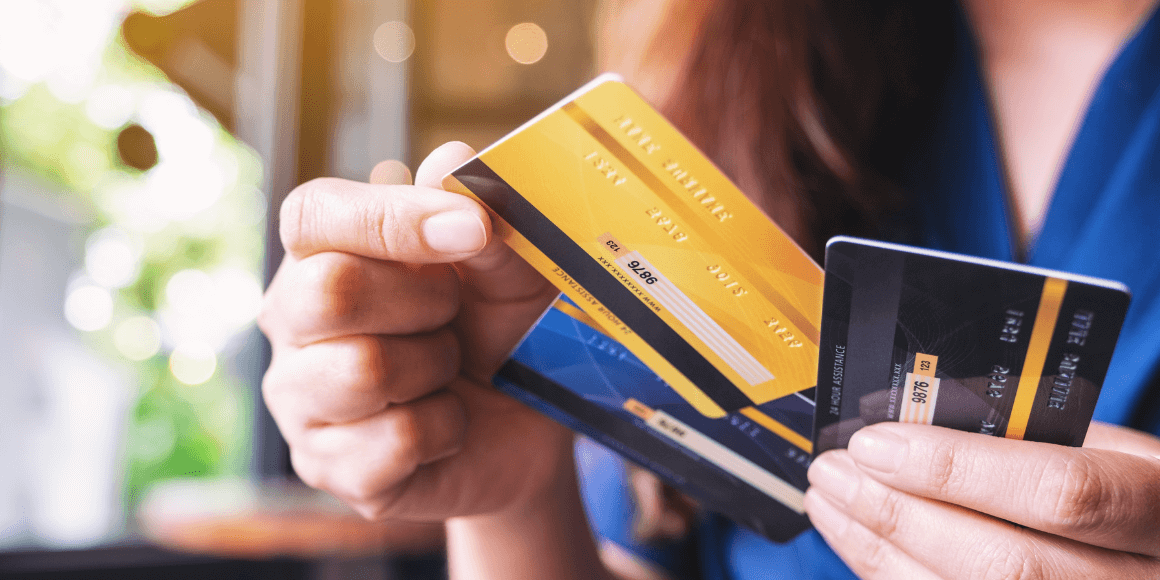- 7 17 Staff
Should I Consolidate My Credit Card Debt?

It’s overwhelming to have credit card debt and not know the best way to eliminate it. On top of that, you may feel stressed, anxious, or even ashamed due to your debt.
It’s important to know that you’re not alone. More than 14 million people in the U.S. have over $10,000 in credit card debt. One of the paths you may be considering is debt consolidation.
Should you consolidate credit card debt? Is it worth it? How do you do it? Keep reading to find out answers to these questions and more.
How Do I Consolidate Credit Card Debt?
There are several ways to consolidate your credit card debt. Here’s what you need to know about each option:
Balance Transfer Credit Card
With this option, you transfer your balances from other credit cards to the balance transfer credit card. However, you can only transfer credit card balances from different lenders. You can’t, for example, transfer a balance from a regular Visa card to a Visa card with balance transfer capabilities.
For this option, you’ll want to look for an introductory 0 percent APR that generally lasts 12–15 months. When you transfer the balance there is a low fee of around 3 percent, but your long-term savings can be significant if you can pay more than the minimum payment and potentially pay off the balance before the introductory 0% APR period ends.
Some downsides of this option are that you might not get approved for a high enough balance to move all of your credit card debt to the balance transfer card. Also, adding another credit card could worsen spending problems.
Personal Loan
To consolidate credit card debt with a personal loan, you’d apply for a loan with a financial institution which would convert several of your debts into one payment. This simplifies how many payments you make each month and potentially enables you to pay more toward the balance.
With a personal loan, you won’t have an introductory 0 percent APR, but you’ll have structured payments with a clear plan forward and a date that you’ll have your debt paid off by. You also won’t have the temptation of an additional credit card.
However, your interest rate may not be ideal if your credit score isn’t in good shape. It’s important to pay attention to your interest rate to make sure that the personal loan is worth it. Comparing your rates and fees will help you determine which option will help save you the most money.
Home Equity Line of Credit (HELOC)
A HELOC taps into the equity you’ve built in your home and is a revolving line of credit similar to credit cards. You’re only charged interest on the amount that you use, and your interest rate may be lower than any personal loans you may qualify for.
Some of the benefits of using a HELOC to consolidate credit card debt are flexible repayment options and potential tax deductions for interest on home equity loans. However, your payments may still be costly depending on the length of your repayment.
Is Debt Consolidation a Smart Move?
Debt consolidation involves combining multiple debts and their payments down into one debt with one payment. It can help reorganize your debt and reduce your total debt so you can pay it off faster. When you’re considering consolidating credit card debt, there are a few things you need to evaluate.
If your debt is small and can be paid off within a year, it’s not worth it to pursue debt consolidation. Instead, it may be more helpful to put extra money toward your payments until they’re paid off.
If your credit score is low you may not receive favorable loan rates or monthly payments, which could make it harder to pay off your debt. Additionally, if your loan rates aren’t better than your current terms, then it’s not worth taking on a new loan or balance transfer credit card.
Start Your Debt Payoff Plan
It’s possible to get a handle on your debt. 7 17 Credit Union has several resources that can help, including our debt calculator, which is the first step in creating a plan for paying off debt.